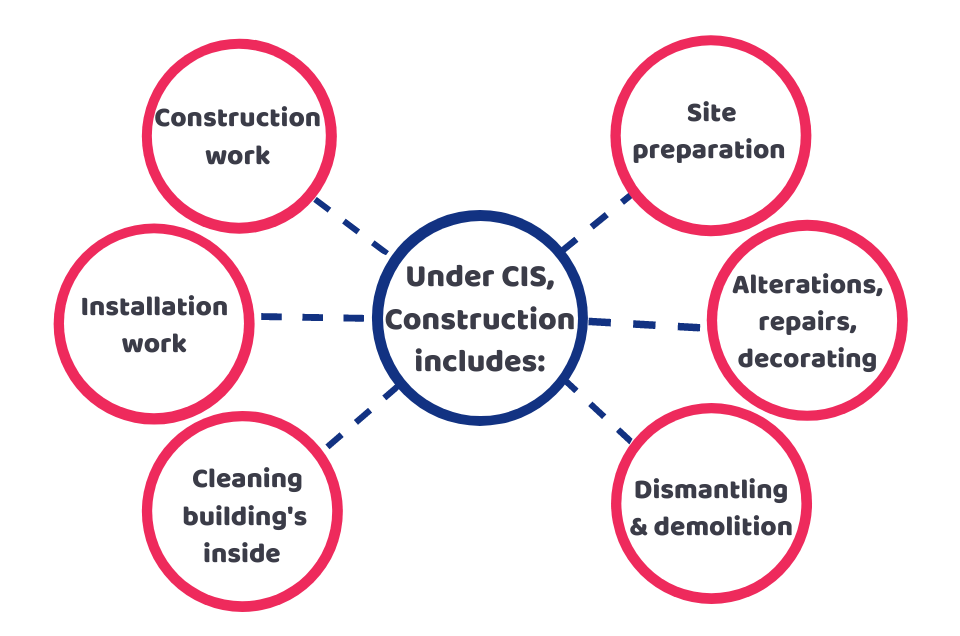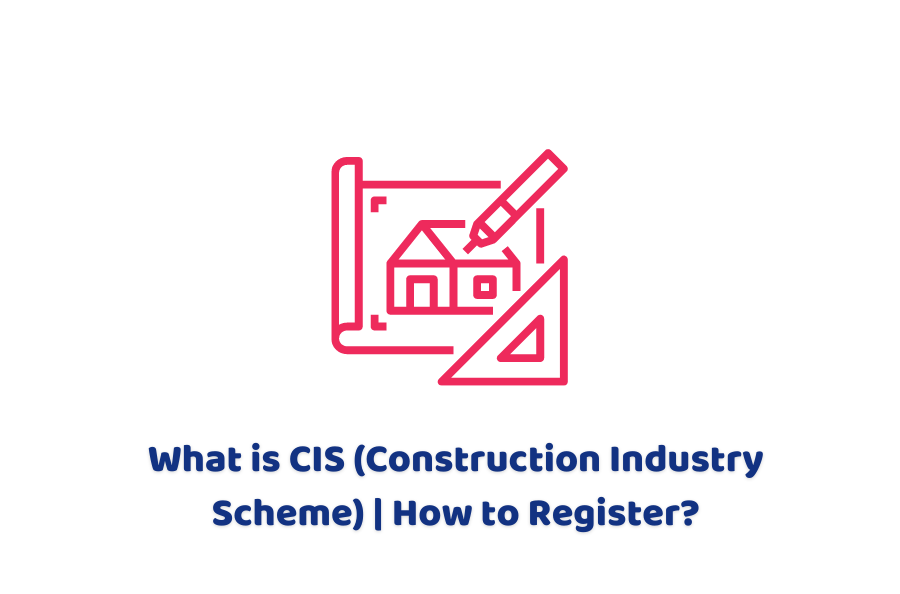Wondering what is CIS (Construction Industry Scheme)? This scheme works similar to PAYE to deduct income tax and NI from the subcontractor’s payment at source. If you’re a contractor or subcontractor working in the construction industry in the UK, you need to be aware of the rules laid down by the government under Construction Industry Scheme.
Accounting Firms is the UK’s only instant Accountancy & Taxation Fee Comparison Website, where you can search, compare profiles, and read reviews of CIS accountants and tax experts. Register today for FREE to connect!
So in this blog, we’ll explore the basics of the Construction Industry Scheme (CIS), including:
- What is CIS?
- Who needs to register for CIS?
- What does CIS cover?
- Exceptions
- How to Register for CIS?
Let’s dive into it!
What is CIS (Construction Industry Scheme)?
It is a scheme where a contractor deducts money from the subcontractor’s payment at source as advance payments of Income Tax and National Insurance (NI) to HMRC. Usually, this payment is up to 20% of the subcontractor’s wages, if he/she is registered with CIS. If not, the deductions are made at a higher rate of 30%.
Who Needs to Register for CIS?
According to HMRC, contractors need to register for CIS if either:
- They pay the subcontractors for the work related to construction.
- Their business doesn’t directly do construction but has used over £3 million on construction in the 12 months since the first payment has been made.
You may register as a subcontractor:
- If you are engaged in construction work for a contractor.
You need to register for both if you qualify for both.
What Does CIS Cover?
As per the rules given by HMRC, CIS covers most work related to the construction of a temporary or permanent building or any civil engineering work. Here is the list of construction works that fall under CIS:

- site preparation (laying foundation, etc.)
- alterations, repairs, decorating
- dismantling & demolition
- construction work
- installation work
- cleaning building’s inside after the construction
What are the Exceptions to Register for CIS?
If you’re a person only involved in a certain kind of job, you are not required to register for CIS. These include:
- architecture and surveying
- carpet fitting
- delivering materials
- scaffolding hire (with no labour)
- making materials used in construction, including plant and machinery
- Running a canteen or site facilities on construction site or any other work that is not construction
How to Register for CIS?
Contractors need to register for CIS before working with their first subcontractor.
Register as Contractor
To register as a contractor for CIS, you first need to register as an employer with HMRC. HMRC will further ask you to provide the information needed to register as a CIS contractor. After registering as a new employer, HMRC will formulate a Contractor Scheme for you.
At Accounting Firms, our contractor accountants are experts in all aspects of the Construction Industry Scheme (CIS). Our accountants will help you throughout the process, from CIS registration to filing monthly returns. Register now to connect with the best contractor accountants for FREE!
Register as Subcontractor
It is not compulsory for subcontractors to register for CIS, however, registering for it comes with some benefits. Rather than 30%, the CIS deductions from registered subcontractors will be 20%.
Subcontractors also have the choice to apply for gross payment status, which means that the contractor won’t make any CIS deductions. To qualify you need to:
- Meet your tax obligations on time
- Operate your business through a bank account
- Do construction work ( or provides labour) in the UK
In this instance, the minimum turnover amount must also be met and you need to comply with the regulations of the scheme.
Subcontractors need the following details to register for CIS:
- Trading or business name
- NIC (National Insurance number)
- UTR ( Unique reference number)
- VAT registration number (if registered)
Note that the process will be different based on the legal structure of your business.
Need Help? Turn to AccountingFirms!
To sum up, we have discussed what is CIS, what does it cover and how to register for it. Please consider this guide as a basic overview of the Construction Industry Scheme. For detailed information, you need to have a look at the detailed CIS guide by HMRC. Remember, the CIS rules might vary as per your circumstances and the changes by the government from time to time. For professional assistance, you can reach out to our contractor accountants at Accounting Firms.
CIS can be tricky and complicated for you. So, let it to our qualified CIS accountants and tax experts at Accounting Firms! Signup now at Accounting Firms for Free!
Have a query? Contact us now!
Disclaimer: This blog is intended to provide basic information on CIS (Construction Industry Scheme).

